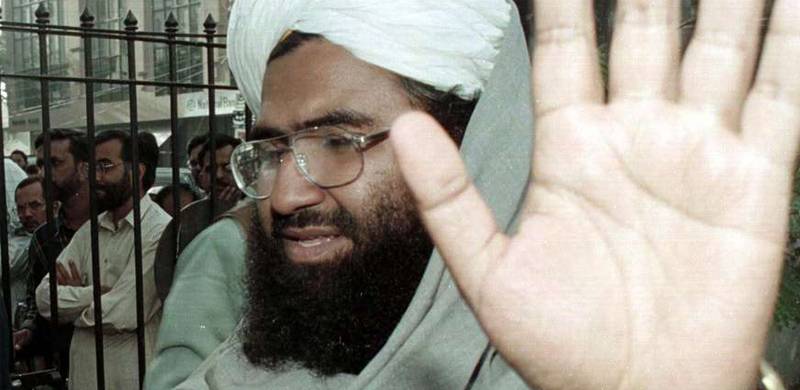
Muhammad Ziauddin in this article discusses how Pakistan could have avoided the current diplomatic backlash and saved the three years it wasted had the action been taken at the right time. Imran is the right man for the right job, he argues.
The Indians did not come all the way to Balakot to kill and capture. They were testing our nuclear threshold. They went back believing, they had succeeded. Next day, in broad daylight they found out to their utter frustration that for all that high risk trouble that they took they could only test our alert Air Force and also lost two aircraft and one pilot captured in the process.
That we hit six targets across the LoC during the incursion but deliberately attacked no military or civilian targets to show what we can do but had no intention to escalate for the sake of peace and amity is another story of daring and audaciousness on the part of our young flyers. There are also unconfirmed reports that one more Indian fighter aircraft was hit by our missiles and one helicopter with six persons also got blown out of air.
Let us not go into what India and Israel tried to do the very next day or the Indian Navy tried to test our waters on Tuesday but could not succeed having been found out in time and warned properly to keep off or face dire consequences.
But going by Prime Minister Narendra Modi’s public threat that he still intended to ‘Ghar mein ghus kar maroogna’ one cannot rule out the possibility of further escalation because of his election compulsions. So, we need to be on our extra guard until at least after the Indian elections are over which perhaps would take us to May-June this year.
General Kiyani's Five-minute window
Let me digress a little here and recall former Chief of Army Staff (COAS) General Ashfaque Pervez Kiyani’s briefing to senior journalists and editors immediately following the US Seals’ raid on the Osama Bin Laden’s adobe in Abbottabad and his killing.
Yes, they can do it because they have a window of about perhaps five minutes. He then paused and added: they would not do it because they know we too have the same five -minute window and would retaliate.
The General was asked: What are the chances of the Indians staging such a raid from the Eastern front? His answer: Yes, they can do it because they have a window of about perhaps five minutes. He then paused and added: they would not do it because they know we too have the same five -minute window and would retaliate.
https://www.youtube.com/watch?v=eYNHyvskMfk
That is exactly what happened. They attacked and we retaliated. We made a better showing because we were expecting it since the Indian claim of ‘surgical strike’ across the Line of Control (LoC) soon after the September 2016 Uri incident. Since we did not retaliate then, they felt emboldened enough to risk the raid without fully factoring in the Pakistani preparedness.
NAP, again?
The government has once again announced a number of long awaited steps to dismantle the non-state actors operating from Pakistani soil. Such steps were announced even after the December 16, 2014 Army Public School (APS) massacre under what is known as National Action Plan (NAP) which had the approval of all our mainstream political parties.
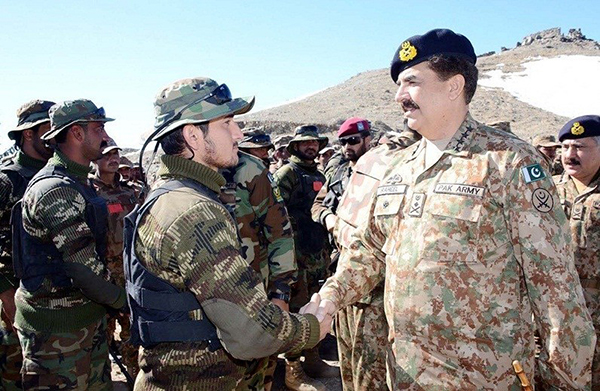
Between then and now, Zarb-i-Azb and Ruddul Fassad have successfully taken care of Tehreek-i-Taliban, Pakistan (TTP), cleared South and North Waziristan of militants, secured the Pak-Afghan border with fencing and started the process of merging the Federally Administered Tribal Areas (FATA) into Khyber Pukhtunkhaw (KP).
Indian propaganda after Pathankot and the road to Nawaz's ouster
Following Pathankot incident of January 2016 and Uri attack of September the same year and the Indian attempts to cash the two at the international level to malign Pakistan and present it as a country sponsoring terrorism the then government of Pakistan of Prime Minister Nawaz Sharif sent a number of delegations to various world capitals to debunk the Indian propaganda. Our attempt failed miserably because after General Musharraf’s Kargil misadventure the world at large had seen with its own eyes visuals of Pakistani troops returning from across the LoC following the ceasefire arranged by the American intervention.
We seemed to have completely lost our Kashmir case in the eyes of the world because of our Kargil blunder. India on the other hand had by then succeeded in convincing the influential world that militants from Pakistan were responsible for the unrest in Indian Occupied Kashmir.
What former chief of FIA wrote on Mumbai Attacks was damning
Then there was this unfinished business of Mumbai massacre of 2008. Tariq Khosa, former chief of FIA, an officer of unimpeachable integrity in his book, The Faltering State (Chapter 57—Mumbai Attacks Trial—Pages 277-78) writes: The following facts are pertinent. Ajmal Kasab was a Pakistani national, whose place of residence and initial schooling as well as his joining a banned militant organization was established by the investigators. Second, the Lashkar–e-Taiba (LeT) terrorists were imparted training near Thatta, Sindh, and launched by sea from there. The training camp was identified and secured by the investigators. The casings of the explosive devices used in Mumbai were recovered from this training camp and duly matched. Third, the fishing trawler used by the terrorists for hijacking an Indian trawler in which they sailed to Mumbai, was brought back to harbor, then painted and concealed. It was recovered by investigators and connected to the accused. Fourth, the engine of the dinghy abandoned by the terrorists near Mumbai harbor contained a patent number through which the investigators traced its import from Japan to Lahore and then to Karachi sports shop from where an LeT-linked militant purchased it along with the dinghy. The money trail was followed and linked to the accused who was arrested. Fifth, the ops room in Karachi, from where the operation was directed, was also identified and secured by the investigators. The communications through Voice over Internet Protocol was unearthed. Sixth, the alleged commander and his deputies were identified and facilitators were arrested and brought to face trial.
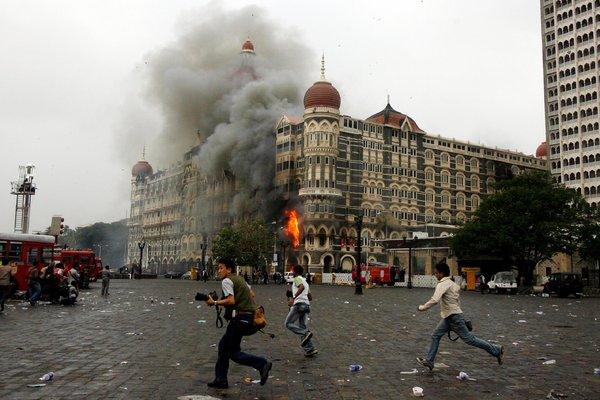
But…. the case is still pending because of various legal technicalities.
Four former officials had warned us
It was in this backdrop that on September 21, 2016 three former foreign secretaries and one former National Security Advisor wrote a front page article in Dawn (Exclusive: Responding to a dangerous time | By Inam ul Haque | Riaz Hussain Khokhar | Riaz Mohammad Khan | Mahmud Durrani Updated Sep 21, 2016 04:35pm).
The following six paragraphs from the article are pertinent:
“Of late, the delay in prosecuting especially those implicated in the Mumbai terrorist incident has been misconstrued as weak Pakistani commitment to fighting terrorism, the nemesis of all modern societies. This undermines Pakistan’s ability to forcefully advocate the Kashmir cause.
“Nothing will help India more than an evidence of outside militant elements blending with the indigenous Kashmiri uprising to justify its extreme violence in India-held Kashmir and its aggressive posture against Pakistan. We should be open to cooperating with any investigation into the Uri attack.
“This is, however, no time to reflect on what happened in the” past. The ongoing Kashmiri struggle against repressive Indian rule, demands clear and emphatic expression of solidarity. The prime minister is expected to do so at the UNGA and in his meetings with world leaders.
“The uprising in Kashmir is not Pakistan instigated as India claims. Kashmir is the oldest dispute on the agenda of the world body waiting international attention for its resolution.
“Above all, it is the Kashmiris and the Kashmiri Diaspora, especially in the United States and the United Kingdom, who must fully mobilise themselves to agitate world conscience to their suffering and the denial of their fundamental rights. They have a vital role to play.
“Pakistan should consult Kashmiri leaders from both sides of the LoC and from Diaspora and they must reach out to each other to chart out a course that corresponds to the wishes of the Kashmiri people.”
NSC meeting that culminated into a disaster
On October 4, 2016 the National Security Council (NSC), met with PM Nawaz in Chair and the then COAS General Raheel Sharif attending. The meeting made it clear that New Delhi’s aggressive posturing and hollow rhetoric could not cow Pakistan, which had made phenomenal progress in the war against terrorism.
PM Sharif reiterated the resolve he had expressed at the United Nations General Assembly, saying that Pakistan and Kashmir were inseparable and that Islamabad would continue to extend moral, political and diplomatic support to the people of Kashmir at all levels.
The meeting reviewed in detail the security situation on the country’s frontiers, with a particular emphasis on the situation on the LoC and the armed forces’ state of operational preparedness.
Referring to recent propaganda and claims of surgical strikes, the forum concluded that India should resolve the longstanding issue of Kashmir to ensure an abiding peace in the region instead of making such futile efforts to divert the world’s attention.
“Pakistan does not cherish aggressive designs against any country or nation; we believe in peace and collective betterment,” PM Sharif noted.
“However, our quest for peace must not be mistaken as a sign of weakness; our armed forces are fully capable of thwarting any threat to our sovereignty and territorial integrity,” he concluded.
The Dawnleaks
However, the next day Dawn’s assistant editor Cyril Almieda published under his byline an Exclusive which said ‘Act against militants or face international isolation, civilians tell military’
“In a blunt, orchestrated and unprecedented warning, the civilian government has informed the military leadership of a growing international isolation of Pakistan and sought consensus on several key actions by the state.
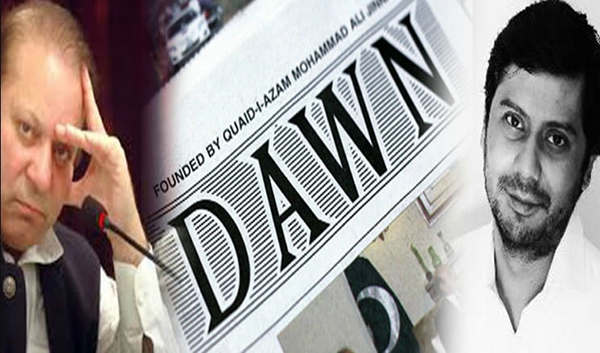
“The message: military-led intelligence agencies are not to interfere if law enforcement acts against militant groups that are banned or until now considered off-limits for civilian action.
“Second, Prime Minister Nawaz Sharif has directed that fresh attempts be made to conclude the Pathankot investigation and restart the stalled Mumbai attacks-related trials in a Rawalpindi antiterrorism court.
“Those decisions, taken after an extraordinary verbal confrontation between Punjab Chief Minister Shahbaz Sharif and the ISI DG, appear to indicate a high-stakes new approach by the PML-N government.
“The following account is based on conversations with Dawn of individuals present in the crucial meetings this week.
“All declined to speak on the record and none of the attributed statements were confirmed by the individuals mentioned.
Foreign secretary’s presentation before a stunned audience
“On Monday, on the day of the All Parties’ Conference, Foreign Secretary Aizaz Chaudhry gave a separate, exclusive presentation in the Prime Minister’s Office to a small group of civil and military officials.
“The meeting was chaired by Prime Minister Sharif and included senior cabinet and provincial officials. On the military side, ISI DG Rizwan Akhtar led the representatives.
“The presentation by the foreign secretary summarised the results of the recent diplomatic outreach by Pakistan, the crux being that Pakistan faces diplomatic isolation and that the government’s talking points have been met with indifference in major world capitals.
“On the US, Mr. Chaudhry said that relations have deteriorated and will likely further deteriorate because of the American demand that action be taken against the Haqqani network. On India, Mr. Chaudhry stated that the completion of the Pathankot investigation and some visible action against Jaish-i-Mohammad were the principal demands.
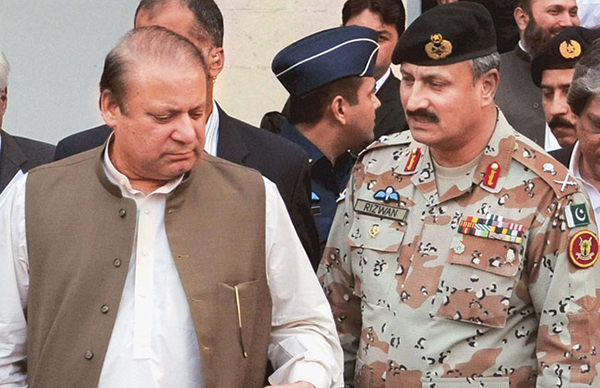
“Then, to a hushed but surprised room, Mr. Chaudhry suggested that while China has reiterated its support for Pakistan, it too has indicated a preference for a change in course by Pakistan. Specifically, while Chinese authorities have conveyed their willingness to keep putting on technical hold a UN ban on Jaish-i-Mohammad leader Masood Azhar, they have questioned the logic of doing so repeatedly.
“The foreign secretary’s unexpectedly blunt conclusions triggered an astonishing and potentially ground-shifting exchange between the ISI DG and several civilian officials.
“In response to Foreign Secretary Chaudhry’s conclusions, Gen Akhtar asked what steps could be taken to prevent the drift towards isolation. Mr. Chaudhry’s reply was direct and emphatic: the principal international demands are for action against Masood Azhar and the Jaish-i-Mohmmad; Hafiz Saeed and the Lashkar-e-Taiba; and the Haqqani network.
“To that, Gen Akhtar offered that the government should arrest whomever it deems necessary, though it is unclear whether he was referring to particular individuals or members of banned groups generally.
At that point came the stunning and unexpectedly bold intervention by Punjab Chief Minister Shahbaz Sharif.
“Addressing Gen Akhtar, the younger Sharif complained that whenever action has been taken against certain groups by civilian authorities, the security establishment has worked behind the scenes to set the arrested free. Astounded onlookers describe a stunned room that was immediately aware of the extraordinary, unprecedented nature of the exchange.
“To defuse tensions, Prime Minister Sharif himself addressed Gen Akhtar and said that policies pursued in the past were state policies and as such they were the collective responsibility of the state and that the ISI DG was not being accused of complicity in present-day events.
“Several eyewitnesses to the incredible events of Monday believe that the foreign secretary’s presentation and Chief Minister Shahbaz Sharif’s intervention were orchestrated by the prime minister to stir the military to action, leading to the decision to dispatch the ISI DG on an inter-provincial tour.
“Yet, according to the accounts shared with Dawn, the sparring between the ISI DG and civilian officials did not degenerate into acrimony.
“Earlier in the meeting, ISI DG Gen Akhtar stated that not only is it the military’s policy to not distinguish between militant groups, but that the military is committed to that policy prevailing. The ISI chief did mention concerns about the timing of action against several groups, citing the need to not be seen as buckling to Indian pressure or abandoning the Kashmiri people.
“Gen Akhtar also readily agreed to tour the provinces at the direction of the prime minister, issue fresh orders to ISI sector commanders and meet with provincial apex committees to chalk out specific actions that need to be taken in various provinces.
“According to several government officials, Monday’s confrontation was part of a high-stakes gamble by Prime Minister Sharif to try and forestall further diplomatic pressure on Pakistan. In separate meetings with the army chief, participants describe an animated and energised Mr. Sharif, who has argued that Pakistan faces real isolation if policy adjustments are not made.
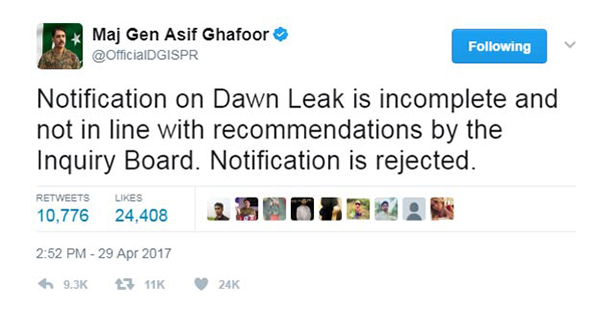
“Government officials, however, are divided about whether Prime Minister Sharif’s gamble will pay off. According to one official, commenting on the ISI DG’s commitments, “This is what we prayed to hear all our lives. Let’s see if it happens.”
“Another government official offered: “Wait till November to see if action will be taken. By then a lot of things will be settled.”
“Military officials declined to comment.”
NAP in action, once more
The government is doing today exactly what the then civilian government had instructed the relevant agencies and institutions to start doing following the NSC meeting on Monday, October 4, 2016.
But, instead of carrying out the orders of the PM Sharif the then Army leadership kicked up a controversy creating the impression that that Cyril’s exclusive was some kind of tendentious conspiracy against the security institution. This led to a running feud between the civil government and the Army which finally culminated in the PM Sharif being declared not honest and sagacious under a relevant article of the constitution by the Supreme Court and disqualified to hold an elected office.
Had the security institutions not wasted precious time in playing politics and acted on the timely instructions of the then civilian government Pakistan perhaps would have escaped being confronted with a war like situation today and avoided being seen forced to do by the forces of circumstances exactly what it was seemingly reluctant to do in October 2016.
Need for a probe
Prime Minister Imran Khan in his own political and leadership interests needs to find out exactly what had happened in the October 4, 2016 meeting and why the then security institutions’ leadership had disobeyed the orders of the then elected PM. An in camera parliamentary session could be called and all those who had attended the October 4, 2016 meeting along with the minutes of the meeting should be invited to discuss the entire episode in its full detail so as to find out why that meeting had degenerated into a confrontation between the civil and military leadership rather than into an accelerated action on NAP.
PM Imran: Right person for the right job
Luckily for Pakistan today we have a person like Imran Khan, a man without any political or otherwise baggage, at the country’s political helm. His is one Pakistani face that is recognized almost throughout the world over carrying a kind of charming celebrative image. And perhaps he is one Pakistani who is known to Indians more than any other Pakistani, especially among the Indian ruling elite. His achievement is not confined to international sports only, but his success in setting up a world class cancer hospital through sheer personal dedication is also a great work of note. And luckily, again, today both the civilian and the military institutions are seemingly on the so-called same page. It is an ideal situation for tackling the looming war-like crisis. In any case we have no options left other than implementing NAP in right earnest because of FATF conditionalities as well regarding money laundering and terror financing.
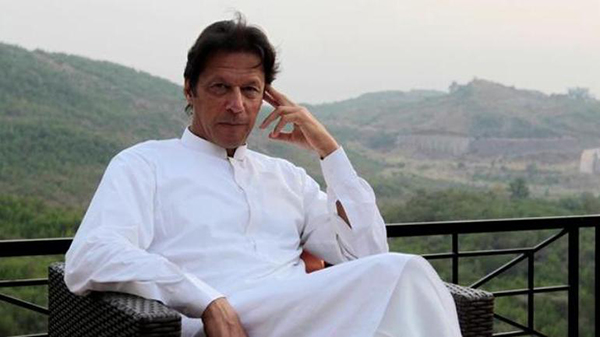
Imran warned: We had the right person for the right job in times of all existential crises
But then if we look back over the last 71 years of our history we had the right person for the right job in times of all existential crises that the country had faced.
After the Bangladesh debacle ZA Bhutto was brought back to Pakistan by the military leadership and handed over a truncated country. No doubt ZAB had many personality faults but the way he picked up the pieces of the residual Pakistan and turned it into a lively country once again was nothing less than a miracle. But those very people who had brought him back from Rome sent him to gallows in a cooked up murder case.
https://www.youtube.com/watch?v=lxqqr_SKLV0
Next, Nawaz and Altaf were used to stop Benazir from sweeping the 1988 elections and then sent her home on corruption charges as Nawaz was allowed to win the 1990 polls. But when the country was about to be designated a terrorist state, Benazir was brought back because the incoming US president Clinton was known to have been a fan of the lady and as expected he did not sign the terror file. As soon as the terror threat disappeared she was once again sent home on corruption charges and Nawaz was brought back. And now Nawaz and Altaf, both the products of you-know-who and who were at one time or the other on the same page with the security institutions are out of grace and are the most maligned Pakistanis today.
So, PM Imran for his own sake and for the sake of Pakistan should use the obtaining political situation to seek the cooperation of all mainstream political parties, of course without abandoning his mission to cleanse the country of corruption to make parliament where the real national decisions are made instead of the GHQ. Of course, the GHQ’s input on strategic issues should always be welcomed and given the importance that it merits.
The Indians did not come all the way to Balakot to kill and capture. They were testing our nuclear threshold. They went back believing, they had succeeded. Next day, in broad daylight they found out to their utter frustration that for all that high risk trouble that they took they could only test our alert Air Force and also lost two aircraft and one pilot captured in the process.
That we hit six targets across the LoC during the incursion but deliberately attacked no military or civilian targets to show what we can do but had no intention to escalate for the sake of peace and amity is another story of daring and audaciousness on the part of our young flyers. There are also unconfirmed reports that one more Indian fighter aircraft was hit by our missiles and one helicopter with six persons also got blown out of air.
Let us not go into what India and Israel tried to do the very next day or the Indian Navy tried to test our waters on Tuesday but could not succeed having been found out in time and warned properly to keep off or face dire consequences.
But going by Prime Minister Narendra Modi’s public threat that he still intended to ‘Ghar mein ghus kar maroogna’ one cannot rule out the possibility of further escalation because of his election compulsions. So, we need to be on our extra guard until at least after the Indian elections are over which perhaps would take us to May-June this year.
General Kiyani's Five-minute window
Let me digress a little here and recall former Chief of Army Staff (COAS) General Ashfaque Pervez Kiyani’s briefing to senior journalists and editors immediately following the US Seals’ raid on the Osama Bin Laden’s adobe in Abbottabad and his killing.
Yes, they can do it because they have a window of about perhaps five minutes. He then paused and added: they would not do it because they know we too have the same five -minute window and would retaliate.
The General was asked: What are the chances of the Indians staging such a raid from the Eastern front? His answer: Yes, they can do it because they have a window of about perhaps five minutes. He then paused and added: they would not do it because they know we too have the same five -minute window and would retaliate.
https://www.youtube.com/watch?v=eYNHyvskMfk
That is exactly what happened. They attacked and we retaliated. We made a better showing because we were expecting it since the Indian claim of ‘surgical strike’ across the Line of Control (LoC) soon after the September 2016 Uri incident. Since we did not retaliate then, they felt emboldened enough to risk the raid without fully factoring in the Pakistani preparedness.
NAP, again?
The government has once again announced a number of long awaited steps to dismantle the non-state actors operating from Pakistani soil. Such steps were announced even after the December 16, 2014 Army Public School (APS) massacre under what is known as National Action Plan (NAP) which had the approval of all our mainstream political parties.

Between then and now, Zarb-i-Azb and Ruddul Fassad have successfully taken care of Tehreek-i-Taliban, Pakistan (TTP), cleared South and North Waziristan of militants, secured the Pak-Afghan border with fencing and started the process of merging the Federally Administered Tribal Areas (FATA) into Khyber Pukhtunkhaw (KP).
Indian propaganda after Pathankot and the road to Nawaz's ouster
Following Pathankot incident of January 2016 and Uri attack of September the same year and the Indian attempts to cash the two at the international level to malign Pakistan and present it as a country sponsoring terrorism the then government of Pakistan of Prime Minister Nawaz Sharif sent a number of delegations to various world capitals to debunk the Indian propaganda. Our attempt failed miserably because after General Musharraf’s Kargil misadventure the world at large had seen with its own eyes visuals of Pakistani troops returning from across the LoC following the ceasefire arranged by the American intervention.
We seemed to have completely lost our Kashmir case in the eyes of the world because of our Kargil blunder. India on the other hand had by then succeeded in convincing the influential world that militants from Pakistan were responsible for the unrest in Indian Occupied Kashmir.
What former chief of FIA wrote on Mumbai Attacks was damning
Then there was this unfinished business of Mumbai massacre of 2008. Tariq Khosa, former chief of FIA, an officer of unimpeachable integrity in his book, The Faltering State (Chapter 57—Mumbai Attacks Trial—Pages 277-78) writes: The following facts are pertinent. Ajmal Kasab was a Pakistani national, whose place of residence and initial schooling as well as his joining a banned militant organization was established by the investigators. Second, the Lashkar–e-Taiba (LeT) terrorists were imparted training near Thatta, Sindh, and launched by sea from there. The training camp was identified and secured by the investigators. The casings of the explosive devices used in Mumbai were recovered from this training camp and duly matched. Third, the fishing trawler used by the terrorists for hijacking an Indian trawler in which they sailed to Mumbai, was brought back to harbor, then painted and concealed. It was recovered by investigators and connected to the accused. Fourth, the engine of the dinghy abandoned by the terrorists near Mumbai harbor contained a patent number through which the investigators traced its import from Japan to Lahore and then to Karachi sports shop from where an LeT-linked militant purchased it along with the dinghy. The money trail was followed and linked to the accused who was arrested. Fifth, the ops room in Karachi, from where the operation was directed, was also identified and secured by the investigators. The communications through Voice over Internet Protocol was unearthed. Sixth, the alleged commander and his deputies were identified and facilitators were arrested and brought to face trial.

But…. the case is still pending because of various legal technicalities.
Four former officials had warned us
It was in this backdrop that on September 21, 2016 three former foreign secretaries and one former National Security Advisor wrote a front page article in Dawn (Exclusive: Responding to a dangerous time | By Inam ul Haque | Riaz Hussain Khokhar | Riaz Mohammad Khan | Mahmud Durrani Updated Sep 21, 2016 04:35pm).
The following six paragraphs from the article are pertinent:
“Of late, the delay in prosecuting especially those implicated in the Mumbai terrorist incident has been misconstrued as weak Pakistani commitment to fighting terrorism, the nemesis of all modern societies. This undermines Pakistan’s ability to forcefully advocate the Kashmir cause.
“Nothing will help India more than an evidence of outside militant elements blending with the indigenous Kashmiri uprising to justify its extreme violence in India-held Kashmir and its aggressive posture against Pakistan. We should be open to cooperating with any investigation into the Uri attack.
“This is, however, no time to reflect on what happened in the” past. The ongoing Kashmiri struggle against repressive Indian rule, demands clear and emphatic expression of solidarity. The prime minister is expected to do so at the UNGA and in his meetings with world leaders.
“The uprising in Kashmir is not Pakistan instigated as India claims. Kashmir is the oldest dispute on the agenda of the world body waiting international attention for its resolution.
“Above all, it is the Kashmiris and the Kashmiri Diaspora, especially in the United States and the United Kingdom, who must fully mobilise themselves to agitate world conscience to their suffering and the denial of their fundamental rights. They have a vital role to play.
“Pakistan should consult Kashmiri leaders from both sides of the LoC and from Diaspora and they must reach out to each other to chart out a course that corresponds to the wishes of the Kashmiri people.”
NSC meeting that culminated into a disaster
On October 4, 2016 the National Security Council (NSC), met with PM Nawaz in Chair and the then COAS General Raheel Sharif attending. The meeting made it clear that New Delhi’s aggressive posturing and hollow rhetoric could not cow Pakistan, which had made phenomenal progress in the war against terrorism.
PM Sharif reiterated the resolve he had expressed at the United Nations General Assembly, saying that Pakistan and Kashmir were inseparable and that Islamabad would continue to extend moral, political and diplomatic support to the people of Kashmir at all levels.
The meeting reviewed in detail the security situation on the country’s frontiers, with a particular emphasis on the situation on the LoC and the armed forces’ state of operational preparedness.
Referring to recent propaganda and claims of surgical strikes, the forum concluded that India should resolve the longstanding issue of Kashmir to ensure an abiding peace in the region instead of making such futile efforts to divert the world’s attention.
“Pakistan does not cherish aggressive designs against any country or nation; we believe in peace and collective betterment,” PM Sharif noted.
“However, our quest for peace must not be mistaken as a sign of weakness; our armed forces are fully capable of thwarting any threat to our sovereignty and territorial integrity,” he concluded.
The Dawnleaks
However, the next day Dawn’s assistant editor Cyril Almieda published under his byline an Exclusive which said ‘Act against militants or face international isolation, civilians tell military’
“In a blunt, orchestrated and unprecedented warning, the civilian government has informed the military leadership of a growing international isolation of Pakistan and sought consensus on several key actions by the state.

“The message: military-led intelligence agencies are not to interfere if law enforcement acts against militant groups that are banned or until now considered off-limits for civilian action.
“Second, Prime Minister Nawaz Sharif has directed that fresh attempts be made to conclude the Pathankot investigation and restart the stalled Mumbai attacks-related trials in a Rawalpindi antiterrorism court.
“Those decisions, taken after an extraordinary verbal confrontation between Punjab Chief Minister Shahbaz Sharif and the ISI DG, appear to indicate a high-stakes new approach by the PML-N government.
“The following account is based on conversations with Dawn of individuals present in the crucial meetings this week.
“All declined to speak on the record and none of the attributed statements were confirmed by the individuals mentioned.
Foreign secretary’s presentation before a stunned audience
“On Monday, on the day of the All Parties’ Conference, Foreign Secretary Aizaz Chaudhry gave a separate, exclusive presentation in the Prime Minister’s Office to a small group of civil and military officials.
“The meeting was chaired by Prime Minister Sharif and included senior cabinet and provincial officials. On the military side, ISI DG Rizwan Akhtar led the representatives.
“The presentation by the foreign secretary summarised the results of the recent diplomatic outreach by Pakistan, the crux being that Pakistan faces diplomatic isolation and that the government’s talking points have been met with indifference in major world capitals.
“On the US, Mr. Chaudhry said that relations have deteriorated and will likely further deteriorate because of the American demand that action be taken against the Haqqani network. On India, Mr. Chaudhry stated that the completion of the Pathankot investigation and some visible action against Jaish-i-Mohammad were the principal demands.

“Then, to a hushed but surprised room, Mr. Chaudhry suggested that while China has reiterated its support for Pakistan, it too has indicated a preference for a change in course by Pakistan. Specifically, while Chinese authorities have conveyed their willingness to keep putting on technical hold a UN ban on Jaish-i-Mohammad leader Masood Azhar, they have questioned the logic of doing so repeatedly.
“The foreign secretary’s unexpectedly blunt conclusions triggered an astonishing and potentially ground-shifting exchange between the ISI DG and several civilian officials.
“In response to Foreign Secretary Chaudhry’s conclusions, Gen Akhtar asked what steps could be taken to prevent the drift towards isolation. Mr. Chaudhry’s reply was direct and emphatic: the principal international demands are for action against Masood Azhar and the Jaish-i-Mohmmad; Hafiz Saeed and the Lashkar-e-Taiba; and the Haqqani network.
“To that, Gen Akhtar offered that the government should arrest whomever it deems necessary, though it is unclear whether he was referring to particular individuals or members of banned groups generally.
At that point came the stunning and unexpectedly bold intervention by Punjab Chief Minister Shahbaz Sharif.
“Addressing Gen Akhtar, the younger Sharif complained that whenever action has been taken against certain groups by civilian authorities, the security establishment has worked behind the scenes to set the arrested free. Astounded onlookers describe a stunned room that was immediately aware of the extraordinary, unprecedented nature of the exchange.
“To defuse tensions, Prime Minister Sharif himself addressed Gen Akhtar and said that policies pursued in the past were state policies and as such they were the collective responsibility of the state and that the ISI DG was not being accused of complicity in present-day events.
“Several eyewitnesses to the incredible events of Monday believe that the foreign secretary’s presentation and Chief Minister Shahbaz Sharif’s intervention were orchestrated by the prime minister to stir the military to action, leading to the decision to dispatch the ISI DG on an inter-provincial tour.
“Yet, according to the accounts shared with Dawn, the sparring between the ISI DG and civilian officials did not degenerate into acrimony.
“Earlier in the meeting, ISI DG Gen Akhtar stated that not only is it the military’s policy to not distinguish between militant groups, but that the military is committed to that policy prevailing. The ISI chief did mention concerns about the timing of action against several groups, citing the need to not be seen as buckling to Indian pressure or abandoning the Kashmiri people.
“Gen Akhtar also readily agreed to tour the provinces at the direction of the prime minister, issue fresh orders to ISI sector commanders and meet with provincial apex committees to chalk out specific actions that need to be taken in various provinces.
“According to several government officials, Monday’s confrontation was part of a high-stakes gamble by Prime Minister Sharif to try and forestall further diplomatic pressure on Pakistan. In separate meetings with the army chief, participants describe an animated and energised Mr. Sharif, who has argued that Pakistan faces real isolation if policy adjustments are not made.

“Government officials, however, are divided about whether Prime Minister Sharif’s gamble will pay off. According to one official, commenting on the ISI DG’s commitments, “This is what we prayed to hear all our lives. Let’s see if it happens.”
“Another government official offered: “Wait till November to see if action will be taken. By then a lot of things will be settled.”
“Military officials declined to comment.”
NAP in action, once more
The government is doing today exactly what the then civilian government had instructed the relevant agencies and institutions to start doing following the NSC meeting on Monday, October 4, 2016.
But, instead of carrying out the orders of the PM Sharif the then Army leadership kicked up a controversy creating the impression that that Cyril’s exclusive was some kind of tendentious conspiracy against the security institution. This led to a running feud between the civil government and the Army which finally culminated in the PM Sharif being declared not honest and sagacious under a relevant article of the constitution by the Supreme Court and disqualified to hold an elected office.
Had the security institutions not wasted precious time in playing politics and acted on the timely instructions of the then civilian government Pakistan perhaps would have escaped being confronted with a war like situation today and avoided being seen forced to do by the forces of circumstances exactly what it was seemingly reluctant to do in October 2016.
Need for a probe
Prime Minister Imran Khan in his own political and leadership interests needs to find out exactly what had happened in the October 4, 2016 meeting and why the then security institutions’ leadership had disobeyed the orders of the then elected PM. An in camera parliamentary session could be called and all those who had attended the October 4, 2016 meeting along with the minutes of the meeting should be invited to discuss the entire episode in its full detail so as to find out why that meeting had degenerated into a confrontation between the civil and military leadership rather than into an accelerated action on NAP.
PM Imran: Right person for the right job
Luckily for Pakistan today we have a person like Imran Khan, a man without any political or otherwise baggage, at the country’s political helm. His is one Pakistani face that is recognized almost throughout the world over carrying a kind of charming celebrative image. And perhaps he is one Pakistani who is known to Indians more than any other Pakistani, especially among the Indian ruling elite. His achievement is not confined to international sports only, but his success in setting up a world class cancer hospital through sheer personal dedication is also a great work of note. And luckily, again, today both the civilian and the military institutions are seemingly on the so-called same page. It is an ideal situation for tackling the looming war-like crisis. In any case we have no options left other than implementing NAP in right earnest because of FATF conditionalities as well regarding money laundering and terror financing.

Imran warned: We had the right person for the right job in times of all existential crises
But then if we look back over the last 71 years of our history we had the right person for the right job in times of all existential crises that the country had faced.
After the Bangladesh debacle ZA Bhutto was brought back to Pakistan by the military leadership and handed over a truncated country. No doubt ZAB had many personality faults but the way he picked up the pieces of the residual Pakistan and turned it into a lively country once again was nothing less than a miracle. But those very people who had brought him back from Rome sent him to gallows in a cooked up murder case.
https://www.youtube.com/watch?v=lxqqr_SKLV0
Next, Nawaz and Altaf were used to stop Benazir from sweeping the 1988 elections and then sent her home on corruption charges as Nawaz was allowed to win the 1990 polls. But when the country was about to be designated a terrorist state, Benazir was brought back because the incoming US president Clinton was known to have been a fan of the lady and as expected he did not sign the terror file. As soon as the terror threat disappeared she was once again sent home on corruption charges and Nawaz was brought back. And now Nawaz and Altaf, both the products of you-know-who and who were at one time or the other on the same page with the security institutions are out of grace and are the most maligned Pakistanis today.
So, PM Imran for his own sake and for the sake of Pakistan should use the obtaining political situation to seek the cooperation of all mainstream political parties, of course without abandoning his mission to cleanse the country of corruption to make parliament where the real national decisions are made instead of the GHQ. Of course, the GHQ’s input on strategic issues should always be welcomed and given the importance that it merits.
